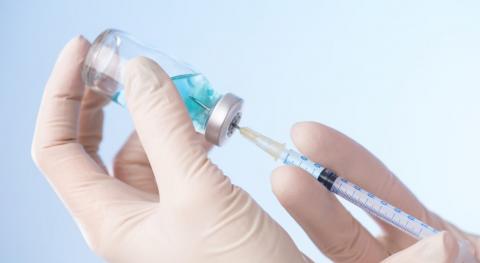There are new vaccination guidelines - make sure you know them

The guidelines on cat vaccinations have been updated. Make sure you know what to vaccinate your cat for, and how often you should do it. Annual boosters for all of the core vaccines are no longer routinely recommended as they may cause more harm than good.
Cat vaccinations save lives. There is no doubt about that. But over the past decade or so growing evidence has emerged that they can also have a negative impact on your cat’s health. In a very small incidence of cases, vaccinations can even cause cancer at the site of the vaccination.
Some vaccinations also give your cat protection for at least 7 years - and often for life. It seems foolish to vaccinate every single year, when one single vaccination can provide cover for life - particularly given the risks of cat vaccinations.
So when we consider what vaccinations should be given, and when, we embark upon on a balancing act of risk.
The ABCD and WSAVA have released up to date guidelines, that have been developed with these new risks in mind.
Core vaccinations for your cat
There are 3 cat vaccinations that are considered to be core vaccinations:
- FHV = feline herpes virus. Rarely fatal. Vaccinations for FHV do not provide full immunity, but hopefully reduce the severity of the illness if contracted.
- FCV = feline calcivirus. Again, rarely fatal. Vaccinations for FHV do not provide full immunity, but hopefully reduce the severity of the illness if contracted.
- FPV = feline Panleukopenia Virus. This can be fatal for cats. Luckily, provided that a kitten is vaccinated for FPV they should have immunity for at least 7 years, and often they are immune for life.
New core cat vaccination guidelines
-
Vaccinate for FHV, FCV, and FPV as a kitten (at around 9 and 12 weeks)
-
Vaccinate again at 16 weeks if the kitten is in a high risk environment
-
Give one booster after 12 months of age
-
Then boosters should be given no more frequently than:
-
Every 1-3 years for FCV and FHV-1
-
Every 3 years for FPV (which is thought to give immunity for at least 7 years!)
-
Also, if you miss your annual booster vaccination, your cat does NOT need a ‘re-start’ - they can simply have a single booster vaccination when you choose to give it to them. They do not need two vaccinations 3-4 weeks apart.
These guidelines state the maximum frequency of vaccines - not the minimum. So boosters should be given no more than every 1-3 or 3 years....but they can be more spaced out than this, just not more frequently.
Feline Leukemia Vaccine
Feline Leukemia vaccine is not considered a core vaccine. It is advised that kittens be vaccinated for FeLV because they are more susceptible to the disease, as well as adult cats that will be permitted outdoors or will be sharing a home with a FeLV positive cat.
Homeopathic vaccinations
We do not recommend homoepathic 'vaccinations'. The Royal Veterinary College has recently withdrawn all support for homeopathic treatment after the results of several studies were considered. Please do not allow your kitten to be homeopathically vaccinated as you will almost certainly be leaving your kitten completely unprotected. There may be an appeal to some breeders behind homeopathic 'vaccines' because they can be administered by the breeder at home and at a younger age and both of these things can reduce costs and be far easier in the short term. If you are considering homeopathic vaccination please make sure you do some research first - find proper scientific articles that have been published in academic journals and take your information from there.
Cat vaccinations: conclusions
We suggest that kittens are vaccinated for the 3 core vaccines and feline leukemia at 9 and 12 weeks old, and that boosters are given a year later. After that, you should use your own discretion. Veterinary practices do not seem to be up to date with the new advice on cat vaccinations and almost all of them are still insisting on annual boosters, and re-starts if a booster is missed by more than a month or so.
The current advice, based on the most up to date research does not support this approach (as reviewed by the European Advisory Board on Cat Diseases (ABCD) and World Small Animal Veterinary Association (WSAVA))
The approach will depend on the risks your cat is faced with. For a single, indoor cat, in a low risk environment, it may be that a vaccination every 3-7 years is sufficient, and a FeLV booster may never need to be given after the first one. There is even an argument that as long as your cat is vaccinated at 9 weeks, 12 weeks and then a year later, they could have life long immunity, at least to some of these conditions. So please do your research and keep up to date with this, because the general veterinary industry is simply not keeping up.
If you have multiple cats, or are planning to put your cat into a cattery these are considered risk factors and you may want to vaccinate more often, or at least have your cats titre tested to establish their level of immunity to see if they require another vaccination.
To be clear, we are strong advocates for vaccination, just not for over-vaccination.
Read more:
- the importance of cat litter tray hygiene
- what age should I neuter my male cat?
Find out if we have any British Shorthair kittens available